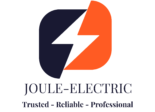Power Up at Home: How to Install an EV Charger the Right Way
Installing an EV charger at home is a game-changer for electric vehicle owners. This EV Charger Installation tips will walk you through everything you need to know, from electrical requirements to cost considerations, ensuring a smooth and hassle-free installation process.
Not only does a home charger provide greater convenience, but it also reduces reliance on public charging stations and offers faster charging times. In addition, a home charger can lead to significant cost savings, making it a smart investment for the future.
However, before moving forward, it’s essential to understand the key factors involved in installation. For instance, your home’s electrical system must be able to handle the charger’s power demands. Moreover, in many cases, permits and installation requirements vary by location.
1️⃣ Why Install an EV Charger at Home?
🏡 Convenience – Charge your EV at home instead of waiting at public charging stations.
💰 Cost Savings – Home charging is often cheaper than using public stations.
⚡ Faster Charging – Level 2 chargers provide significantly faster charging times compared to Level 1.
📈 Increased Property Value – Additionally Homes with EV chargers are seen as future-proof and more attractive to buyers.
2️⃣ Electrical Requirements for EV Charger Installation
Before installing an EV charger, your home’s electrical system must support the additional load. Otherwise, an overloaded circuit could cause frequent breaker trips or safety hazards.
🔹 Panel Capacity – Check if your electrical panel has enough available amperage for a dedicated circuit.
🔹 Load Calculation – A licensed electrician should assess your household’s total electrical load to prevent overloads.
🔹 Breaker & Wiring Size – Most Level 2 chargers require a dedicated 240V circuit with a properly rated breaker.
🔹 Permit Requirements – Some jurisdictions require a permit for installation, especially if a panel upgrade is needed.
3️⃣ Choosing the Right EV Charger
With various EV chargers available, selecting the right one depends on charging speed, compatibility, and additional features. Understanding these options ensures you invest in the best solution for your needs.
🔹 Level 1 vs. Level 2 – Decide whether you need a Level 1 charger (standard 120V outlet) or a Level 2 charger (240V for faster charging).
• 🔋 Level 1 Example: Schumacher SC1455 Level 1 Charger (best for slow overnight charging).
• ⚡ Level 2 Example: JuiceBox 40 Smart EV Charger (faster charging with smart features).
🔹 Smart Features – Some chargers include Wi-Fi connectivity, scheduling options, and energy monitoring for better control over charging.
• 🏠 Example: ChargePoint Home Flex allows remote monitoring and integration with smart home systems.
🔹 Plug-in vs. Hardwired – A plug-in charger offers flexibility, while a hardwired charger provides a more secure, permanent installation.
📌 For a detailed comparison of top EV chargers, check out this guide from Electrify America or Consumer Reports.
4️⃣ Installation Process: What to Expect
A professional EV charger installation follows a structured process to ensure safety, compliance, and efficiency. Here’s what to expect:
A. Assessing the Electrical System
🔹 The electrician inspects your panel capacity and wiring to determine if upgrades are necessary.
B. Securing Permits & Approvals
🔹 If required, the electrician obtains permits to comply with local regulations.
C. Installing & Wiring the Charger
🔹 A dedicated circuit is installed, and the EV charger is securely mounted and connected.
D. Testing & Final Inspection
🔹 The system undergoes thorough testing to confirm safe and code-compliant operation.
💡 Pro Tip: Work with a licensed electrician to ensure a safe and professional installation.
5️⃣ EV Charger Installation Costs: What to Expect
When planning an EV charger installation, understanding the cost factors involved is essential. Here’s what to expect:
🔹 Charger Cost – Prices range from $400 to $1,200, depending on features and smart capabilities.
🔹 Installation Fees – Costs vary from $500 to $2,500, especially if panel upgrades or extensive wiring are required.
🔹 Permit Fees – Some areas require permits, adding $100 to $300 to the total cost.
🔹 Total Estimated Cost – Depending on location and charger type, expect to pay between $1,000 and $3,500 for a complete installation.
💰 Financing Tip: Many utility companies and state programs offer rebates or incentives for EV charger installations. Check your local programs to maximize savings before moving forward.
6️⃣ Future-Proofing Your EV Charging Setup
As EV technology continues to advance, ensuring your charging setup remains efficient and adaptable is essential. Here’s how to stay ahead:
🔹 Upgrade Panel Capacity – Installing a higher-capacity circuit now allows for future EVs with larger battery demands.
🔹 Integrate Solar Power – Pairing your EV charger with solar energy reduces long-term electricity costs and increases sustainability.
🔹 Ensure Code Compliance – Staying up to date with local electrical codes prevents unexpected modifications and keeps your setup reliable.
🚀 Taking these steps now ensures your EV charging system is ready for future advancements.
Final Thoughts: Making EV Charging at Home Simple & Efficient
Installing an EV charger at home is a smart investment that brings convenience, cost savings, and increased property value. However, ensuring a safe and efficient installation requires understanding electrical requirements, cost factors, and future-proofing strategies.
🔌 By working with a licensed electrician, securing necessary permits, and planning for future upgrades, you can maximize the benefits of home EV charging.
📌 For more information or to schedule a consultation, visit joule-electric.com or check out our service page.



